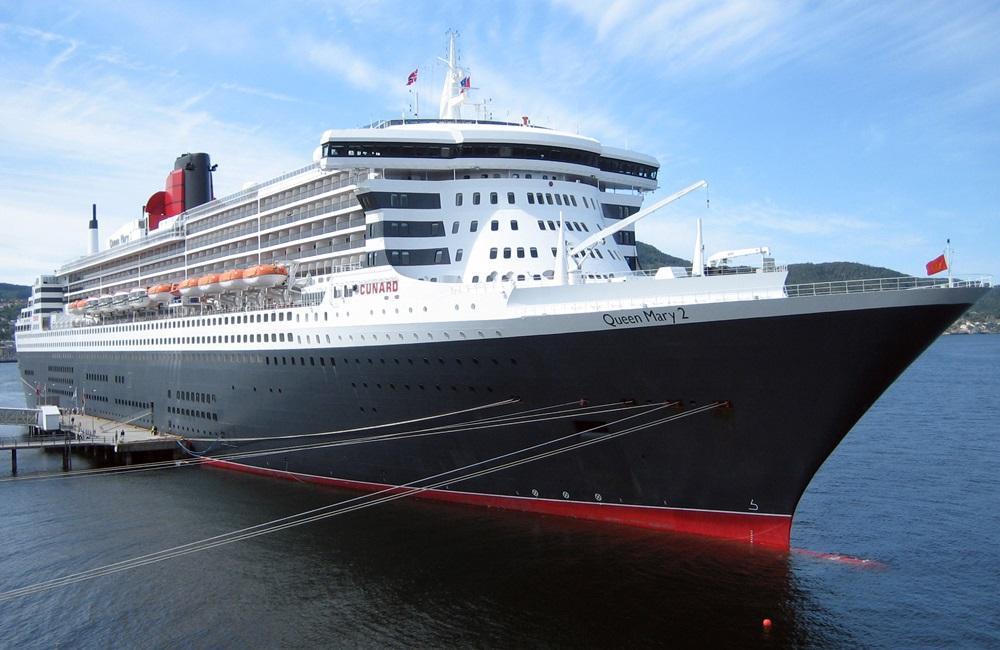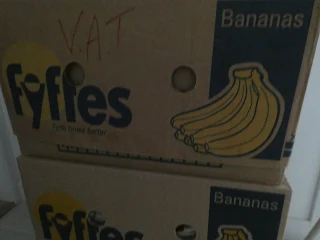Lock down at the Parker's in Innellan
If all else fails, sit down, relax and have a glass of wine.
Lets hope we never do, although l would imagine that the A&E departments will quickly fill up again with drunks and time wasters.
At long last, a new letterbox with a hinged lockable door and a living roof. It makes a change from having to get the screwdriver out to remove the front panel, every time you need to extract mail.
weekly chats with friends around the globe. Technology is great when it works.
Still maintaining the twice a week fasting regime. You need to do something when the fridge is so tempting.

this leads to this

Response to Sunday Times Insight article
Posted by: dhscpressoffice, Posted on: 19 April 2020 - Categories: Coronavirus (COVID-19)A Government spokesman said: ‘This article contains a series of falsehoods and errors and actively misrepresents the enormous amount of work which was going on in government at the earliest stages of the Coronavirus outbreak.’
‘This is an unprecedented global pandemic and we have taken the right steps at the right time to combat it, guided at all times by the best scientific advice.
‘The Government has been working day and night to battle against coronavirus, delivering a strategy designed at all times to protect our NHS and save lives.
'Our response has ensured that the NHS has been given all the support it needs to ensure everyone requiring treatment has received it, as well as providing protection to businesses and reassurance to workers.
‘The Prime Minister has been at the helm of the response to this, providing leadership during this hugely challenging period for the whole nation.’
On the Sunday Times claims:
Claim – On the third Friday in January Coronavirus was already spreading around the world but the government ‘brushed aside’ the threat in an hour-long COBR meeting and said the risk to the UK public was ‘low’.
Response – At a very basic level, this is wrong. The meeting was on the fourth Friday in January. The article also misrepresents the Government’s awareness of Covid 19, and the action we took before this point. Health Secretary Matt Hancock was first alerted to Covid 19 on 3 January and spoke to Departmental officials on 6th Jan before receiving written advice from the UK Health Security Team.
He brought the issue to the attention of the Prime Minister and they discussed Covid 19 on 7 January. The government’s scientific advisory groups started to meet in mid-January and Mr Hancock instituted daily coronavirus meetings. He updated Parliament as soon as possible, on January 23rd.
The risk level was set to “Low” because at the time our scientific advice was that the risk level to the UK public at that point was low. The first UK case was not until 31 January. The specific meaning of “public health risk” refers to the risk there is to the public at precisely that point. The risk was also higher than it had been before - two days earlier it had been increased “Very Low” to “Low” in line with clinical guidance from the Chief Medical Officer.
The WHO did not formally declare that coronavirus was a Public Health Emergency of International Concern (PHEIC) until 30 January, and only characterised it as a global pandemic more than a month later, on 11 March. The UK was taking action and working to improve its preparedness from early January.
Claim - ‘This was despite the publication that day of an alarming study by Chinese doctors in the medical journal The Lancet. It assessed the lethal potential of the virus, for the first time suggesting it was comparable to the 1918 Spanish flu pandemic, which killed up to 50 million people.'
Response - The editor of the Lancet, on exactly the same day – 23 January - called for “caution” and accused the media of ‘escalating anxiety by talking of a ‘killer virus’ and ‘growing fears’. He wrote: ‘In truth, from what we currently know, 2019-nCoV has moderate transmissibility and relatively low pathogenicity. There is no reason to foster panic with exaggerated language.’ The Sunday Times is suggesting that there was a scientific consensus around the fact that this was going to be a pandemic – that is plainly untrue.
https://twitter.com/richardhorton1/status/1220606842449072128?s=19https://twitter.com/richardhorton1/status/1220606842449072128?s=19
Claim - It was unusual for the Prime Minister to be absent from COBR and is normally chaired by the Prime Minister.
Response - This is wrong. It is entirely normal and proper for COBR to be chaired by the relevant Secretary of State. Then Health Secretary Alan Johnson chaired COBR in 2009 during H1N1. Michael Gove chaired COBR as part of No Deal planning. Transport Secretary Grant Shapps chaired COBR during the collapse of Thomas Cook. Mr Hancock was in constant communication with the PM throughout this period.
At this point the World Health Organisation had not declared COVID19 a ‘Public Health Emergency of International Concern’, and only did so only 30 January. Indeed, they chose not to declare a PHEIC the day after the COBR meeting.
Examples of scientific commentary from the time:
Prof Martin Hibberd, Professor of Emerging Infectious Disease, London School of Hygiene and Tropical Medicine, said:
“This announcement is not surprising as more evidence may be needed to make the case of announcing a PHEIC. WHO were criticised after announcing the pandemic strain of novel H1N1_2009, when the virus was eventually realised to have similar characteristics to seasonal influenza and is perhaps trying to avoid making the same mistake here with this novel coronavirus. To estimate the true severity of this new disease requires identifying mild or asymptomatic cases, if there are any, while determining the human to human transmission rate might require more evidence.”
Dr Adam Kamradt-Scott, Senior Lecturer in International Security Studies, University of Sydney, said: “Based on the information we have to date, the WHO Director-General’s decision to not declare a Public Health Emergency of International Concern is not especially surprising. While we have seen international spread of the virus, which is one of the criteria for declaring a PHEIC, the cases in those countries do not appear to have seeded further local outbreaks. If that was to start to occur, it would constitute a greater concern but at the moment the outbreak is largely contained within China.”
Claim - 'Imperial’s Ferguson was already working on his own estimate — putting infectivity at 2.6 and possibly as high as 3.5 — which he sent to ministers and officials in a report on the day of the Cobra meeting on January 24. The Spanish flu had an estimated infectivity rate of between 2.0 and 3.0, so Ferguson’s finding was shocking.’
Response - Infectivity on its own simply reveals how quickly a disease spreads, and not its health impact. For that, it is necessary to know about data such as associated mortality/morbidity. It is sloppy and unscientific to use this number alone to compare to Spanish flu.
Claim - No10 ‘played down the looming threat’ from Coronavirus and displayed an ‘almost nonchalant attitude…for more than a month.’
Response - The suggestion that the government’s attitude was nonchalant is wrong. Extensive and detailed work was going on in government because of Coronavirus, as shown above.
Claim - By the time the Prime Minister chaired a COBR meeting on March 2 ‘the virus had sneaked into our airports, our trains, our workplaces and our homes. Britain was on course for one of the worst infections of the most insidious virus to have hit the world in a century.'
Response - This virus has hit countries across the world. It is ridiculous to suggest that coronavirus only reached the UK because the Health Secretary and not the PM chaired a COBR meeting.
Claim - 'Failure of leadership' by anonymous senior advisor to Downing Street.
Response - The Prime Minister has been at the helm of the Government response to Covid 19, providing the leadership to steer his Ministerial team through a hugely challenging period for the whole nation. This anonymous source is variously described as a ‘senior adviser to Downing Street’ and a ‘senior Downing Street adviser’. The two things are not the same. One suggests an adviser employed by the government in No10. The other someone who provides ad hoc advice. Which is it?
Claim - The government sent 279,000 items of its depleted stockpile of protective equipment to China during this period in response to a request for help from the authorities there.
Response - The equipment was not from the pandemic stockpile. We provided this equipment to China at the height of their need and China has since reciprocated our donation many times over. Between April 2-April 15 we have received over 12 million pieces of PPE in the UK from China.
Claim - Little was done to equip the National Health Service for the coming crisis in this period.
Response - This is wrong. The NHS has responded well to Coronavirus, and has provided treatment to everyone in critical need. We have constructed the new Nightingale hospitals and extended intensive care capacity in other hospitals.
Claim - Among the key points likely to be explored are why it took so long to recognise an urgent need for a massive boost in supplies of personal protective equipment (PPE) for health workers; ventilators to treat acute respiratory symptoms; and tests to detect the infection.
Response - The Department for Health began work on boosting PPE stocks in January, before the first confirmed UK case.
· Discussions on PPE supply for COVID-19 began w/c 27 January (as part of Medical Devices and Clinical Consumables), with the first supply chain kick-off meeting on 31 January. The first additional orders of PPE was placed on 30 January via NHS Supply Chain’s ‘just-in-time contracts’. BAU orders of PPE were ramped up around the same date.
· Friday, 7 February, the department held a webinar for suppliers trading from or via China and the European Union. Over 700 delegates joined and heard the Department’s requests to carry out full supply chain risk assessments and hold onto EU exit stockpiles where they had been retained.
· Monday, 10 February, the department spoke with the major patient groups and charities to update them on the situation regarding the outbreak and to update them on the steps it was taking to protect supplies.
· Tuesday, 11 February, the department wrote to all suppliers in scope of the Covid 19 supply response work – those trading from or via China or the EU – repeating the messages from the webinar and updating suppliers on the current situation relating to novel coronavirus.
· The NHS has spare ventilator capacity and we are investing in further capacity.
Claim - Suggestion that ‘lack of grip’ had the knock-on effect of the national lockdown being introduced days or even weeks too late, causing many thousands more unnecessary deaths.
Response - The government started to act as soon as it was alerted to a potential outbreak. Mr Hancock was first alerted to Covid 19 on 3 January and spoke to Departmental officials on 6th Jan before receiving written advice from the UK Health Security Team. He brought the issue to the attention of the Prime Minister and they discussed Covid 19 on 7 January.
The government’s scientific advisory groups started to meet in mid-January and Hancock instituted daily meetings to grip the emerging threat. We have taken the right steps at the right time guided by the scientific evidence.
Claim - Scientists said the threat from the coming storm was clear and one of the government’s key advisory committees was given a dire warning a month earlier than has previously been admitted about the prospect of having to deal with mass casualties.
Response - The government followed scientific advice at all times. The WHO only determined that COVID 19 would be a global pandemic on 11 March. Claiming that there was scientific consensus on this is just wrong. Sage met on January 22 but the first NERVTAG meeting was held on 13 January (NERVTAG is the New and Emerging Respiratory Virus Threats Advisory Group – see here https://www.gov.uk/government/groups/new-and-emerging-respiratory-virus-threats-advisory-group ).
Claim - The last rehearsal for a pandemic was a 2016 exercise codenamed Cygnus, which predicted the health service would collapse and highlighted a long list of shortcomings — including, presciently, a lack of PPE and intensive care ventilators.
Response - The Government has been extremely proactive in implementing lessons learnt around pandemic preparedness, including from Exercise Cygnus. This includes being ready with legislative proposals that could rapidly be tailored to what became the Coronavirus Act, plans to strengthen excess death planning, planning for recruitment and deployment of retired staff and volunteers, and guidance for stakeholders and sectors across government.
Claim - By February 21 the virus had already infected 76,000 people, had caused 2,300 deaths in China and was taking a foothold in Europe, with Italy recording 51 cases and two deaths the following day. Nonetheless NERVTAG, one of the key government advisory committees, decided to keep the threat level at “moderate”.
Response - This is a misrepresentation of what the threat level is. This is about the current public health danger – and on February 21, when the UK had about a dozen confirmed cases, out of a population of over 66 million, the actual threat to individuals was moderate. In terms of the potential threat, the government was clear – on 10 February the Secretary of State declared that “the incidence or transmission of novel Coronavirus constituted a serious and imminent threat to public health”.
We
are surviving, in fact life for us has not changed too much, other than
bankrolling tour companies, with our money invested in holidays that will not
materialise this year.
We
had two, four week cruises and one ten day. The first four weeks was due on
the 1st July, but that has been cancelled. The second follows one day
later, but it comes in to NY, which according to all the cruise companies will
still be on lock down.
Realistically,
l don’t think l would like to take a chance on board a ship with thousands of
other people until this virus is under control.

Judith
and l still do our TiChi every morning after breakfast.

Elizabeth our TiChi instructor sent us a video to keep us up to date. Unfortunately its too large to add to the blog.
TiChi link
.https://youtu.be/hVm_6dPDcUE
Warm up exercises
https://youtu.be/yMbyWteyeng.
Full 18 set
https://youtu.be/FeRgtSQ9Qic 16 form slow motion
Elizabeth
our Ti Chi instructor has found an interesting immune boosting Ti Chi session.
You can do it whilst seated if need be. I have tried it and you do feel better
afterwards. Give it a go?https://youtu.be/i3noqRBgxWM
Opening the Chi
Opening the chest
Painting the
rainbow
Separating the
clouds
Repulse the monkey
Paddling the boat
Lifting the sun
Turn the body and
look at the moon
Push the palms
Rolling the Chi.
Move hands like clouds
Lift and spray the
water
Pushing the waves
Set the baby bird
free
Punch in the mud
Flying wild geese
Holding and swing
the sun
Bouncing the ball
Closing the Chi
We
keep cracking on with odd jobs around the house, and recently l have started
getting to grips with turning our building site into a garden. Although with
all the garden centres closed, it is quite difficult. Mainly clearing rubbish
and weeds.
Have to take off the top layer of weeds and grass, remove building rubble, at which point we try and get a level. Me with the mattock and Judith doing the skilled job of getting the place level.
Used old scaffold boards to make two large raised beds, although we had to source soil from another part of the garden, along with leaf mould, shredded paper and aged horse manure from up the stables at the end of the lane.
But within a couple of days we had completed the job and sown a variety of vegetables.
Had our usual spectator. Not sure if he is checking out the work, the possibility of food or just on the lookout for a new female to propagate with.
Then
every afternoon we walk for an hour, just to give us fresh air, and get our
heart pumping. We are fortunate living in Scotland, in the highlands. Our
density of population is low, so it’s easy to self isolate.
three thought provoking quotes that are very appropriate
"You're
not stuck at home, you're safe at home. One word can change your attitude, and
one cough can change your life." ~Timber Hawkeye
With
the new day comes new strength and new thoughts. ~ Eleanor Roosevelt
While
there's life, there's hope. ~ Cicero

Travel Updates
Last
Updated: 10.00am 23rd April 2020
**P&O Cruises
and Cunard extend pause in operation**
We
have been advised today (23rd April 2020) that due to the continued
Government guidelines advising against travel, both P&O Cruises and Cunard
have extended the pause in their operations up to and including the 31st July,
2020.
If
your booking is affected by this update, rest assured that we will take care of
cancelling all the arrangements we have booked for your holiday - so you can
focus on other, more important things at this time. You do not need to contact
us, we plan to contact you as soon as possible with more specific information
on your options and the next steps. We are currently assisting passengers
travelling in strict date order and therefore we would appreciate your patience
during this time.
Exit from lockdown
may have to be regional. Nicola Sturgeon's 'McExit' points the way ahead
The window of
opportunity is narrow. A one-nation approach makes it tighter still
23
April 2020 • 9:00pm
Nicola
Sturgeon, always eager to be a caber length ahead of Whitehall, published
McExit CREDIT: AFP
UK
total cases | 138,078
deaths
| 18,738
The
notion “we are all in it together” has been an important element of Britain’s
response to the coronavirus. We’ve acted not as individuals but come together
as a nation to collectively flatten the epidemic curve, saving many thousands
of lives in the process.
Unus
pro omnibus, omnes pro uno, as the Prime Minister might put it – all for
one, and one for all.
But
what makes sense in one direction may not in the other. Scotland’s Nicola
Sturgeon, always eager to be a caber length ahead of Whitehall, on Thursday
published McExit, a long-winded and not especially detailed first shot at an
coronavirus exit strategy.
It
does, however, challenge the one nation approach. It says not only that
Scotland may go it alone if needs must, but that Scotland itself may be
subdivided when it comes to unrolling lockdown. Social distancing options will
be tailored to “specific geographies and sectors, or parts of the rural
economy”.
You
don’t need to be a epidemiologist to know that what is right for the glen may
not work in the Gorbals, but I suspect the modellers on the government's
Scientific Advisory Group for Emergencies (Sage) will be relieved the issue of
regional differentiation has been raised.
As
Professor Chris Whitty, England’s chief medical officer, explained on Wednesday,
they have been set an extraordinarily difficult task. They are charged
with working out what combination of lockdown measures can be relaxed without
allowing the virus’s reproduction number (R) to rise above one
– the point at which it starts to spread exponentially again.
“We
cannot allow R, the force of transmission, to go above one for any extended
period at any point because, if it does, exponential growth will continue,” he
said.
“What
we are trying to work out is what are the things that add up to an R of less
than one. And that narrows our options quite significantly.”
A
report published by the Tony Blair Institute for Global Change on Monday shows
just how narrow those options are.
Advertisement
Taking
numbers from Imperial, it estimates that the R number for the country as a
whole currently stands at 0.7, just three basis points from R1. If you allow
schools to re-open you are instantly up to 0.9. Adding in public gatherings
such as concerts and football matches puts on another 0.6, and already you are
way over the tipping point.
Coronavirus Live
Tracker
See
the latest local, regional, UK and worldwide data on Covid-19's spread
View
now
The
main plank of lockdown – the measure which requires all of us to stay
in our homes unless we have essential work to do – is worth a full 20
basis points alone (R2), so unless it is broken down into the different sectors
and geographies it covers it can't be touched.
It
was reported last week that ministers have privately canvassed several of the
country’s metro mayors for their thoughts on a staged “regional release” of the
lockdown. But the response was an unequivocal “no”.
“Do
not even consider a region by region release from lockdown because that would
be the most chaotic of all,” said Andy Burnham, the Labour mayor of Greater
Manchester.
“It
would be impossible to sustain here if there were images of people going back
to pubs in other parts of the country,” he added in an interview with BBC
Newsnight.
Another storage unit
Partly made kitchen storage unit. Just need hinges, doors, shelves and the solid wooden top.
Breakfast most mornings, porridge with either honey or berries and the obligatory yogurt. Low fat Greek
Managed to get rid of all the storage box's after looking at them in the hallway for the past year.
We build a large bookcase. Voila!
Brilliant

All the box's content now on shelves. A treat to have large books out on display and photograph albums to brows through during the lockdown.























Comments
Post a Comment